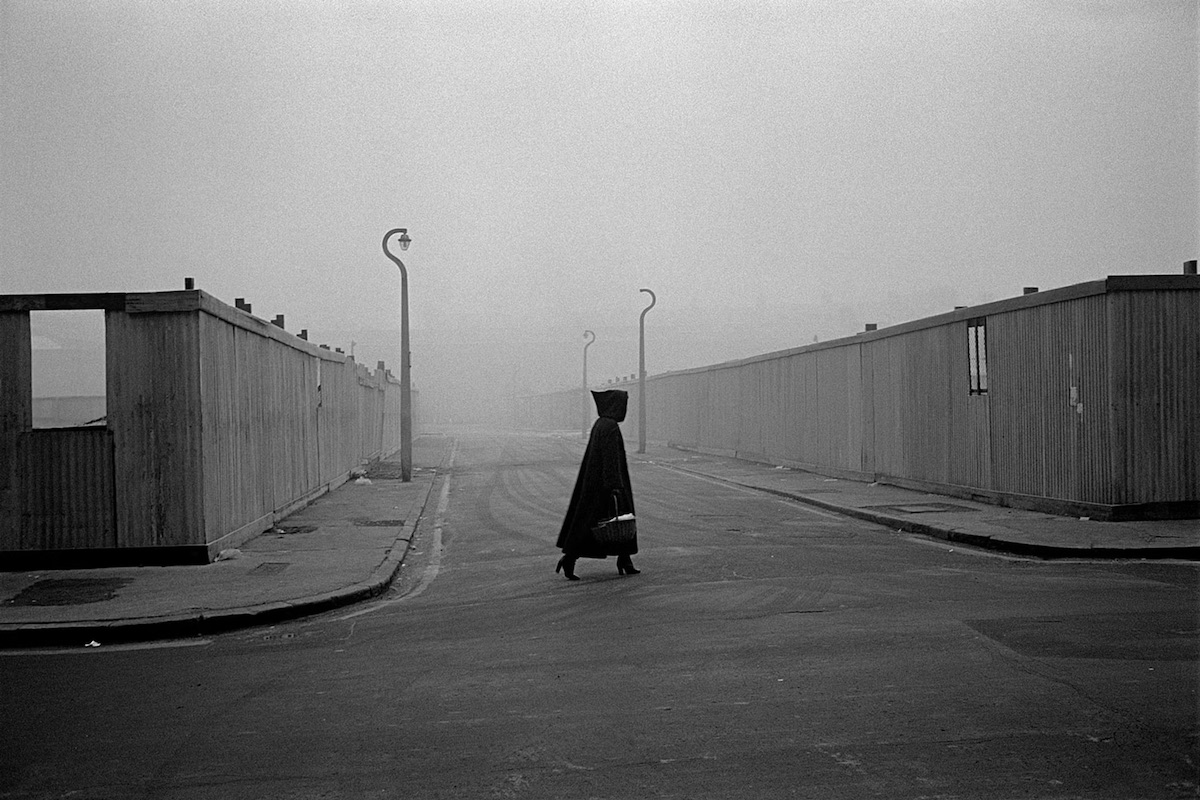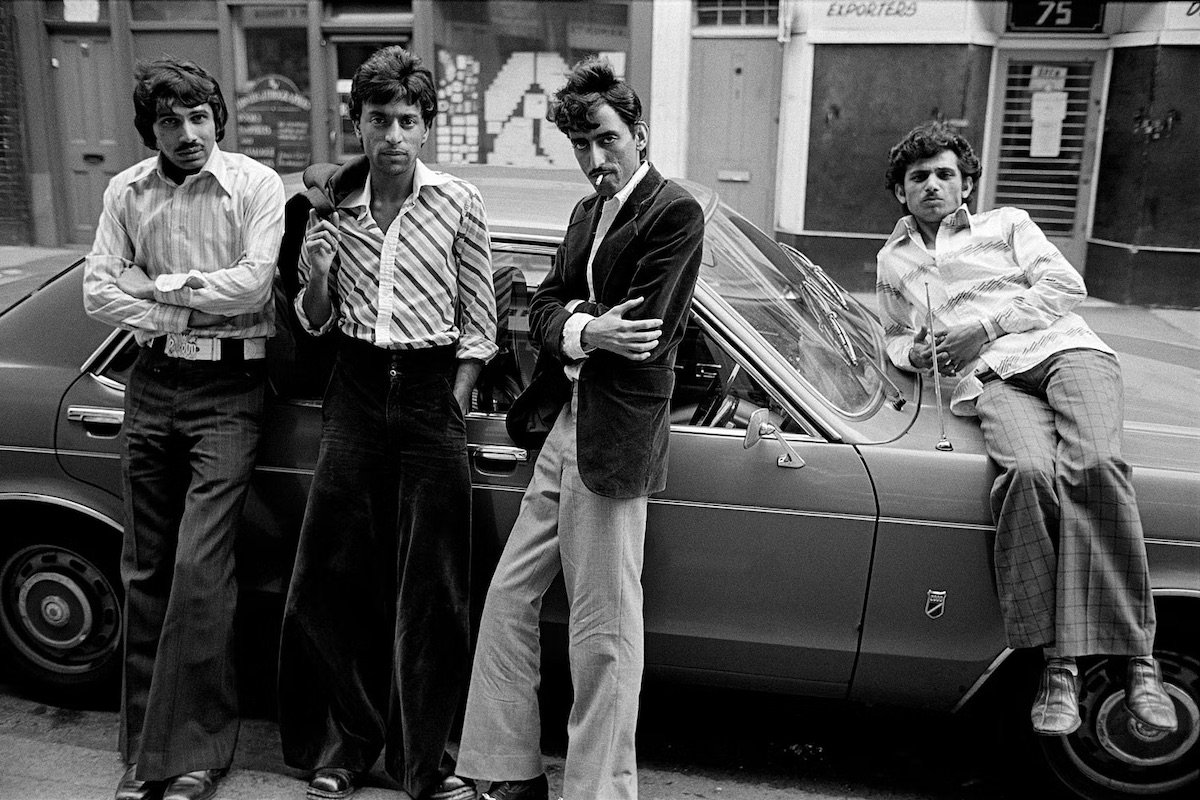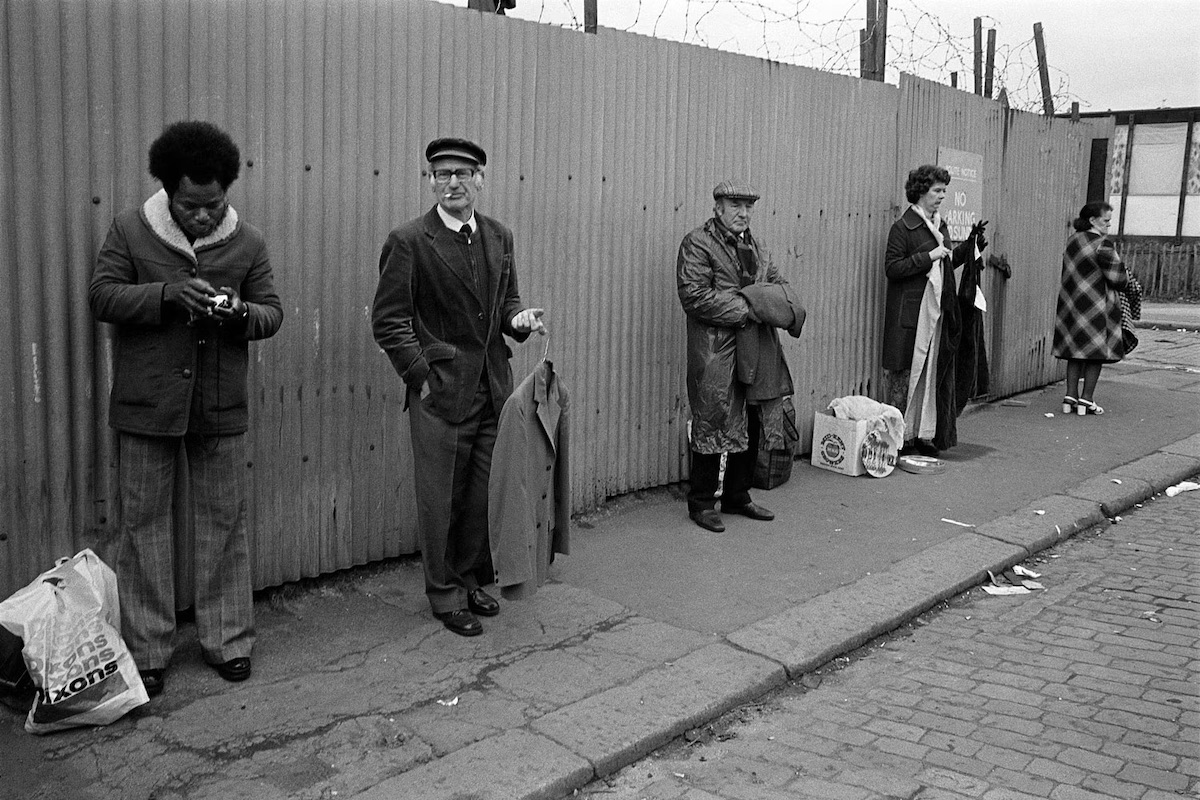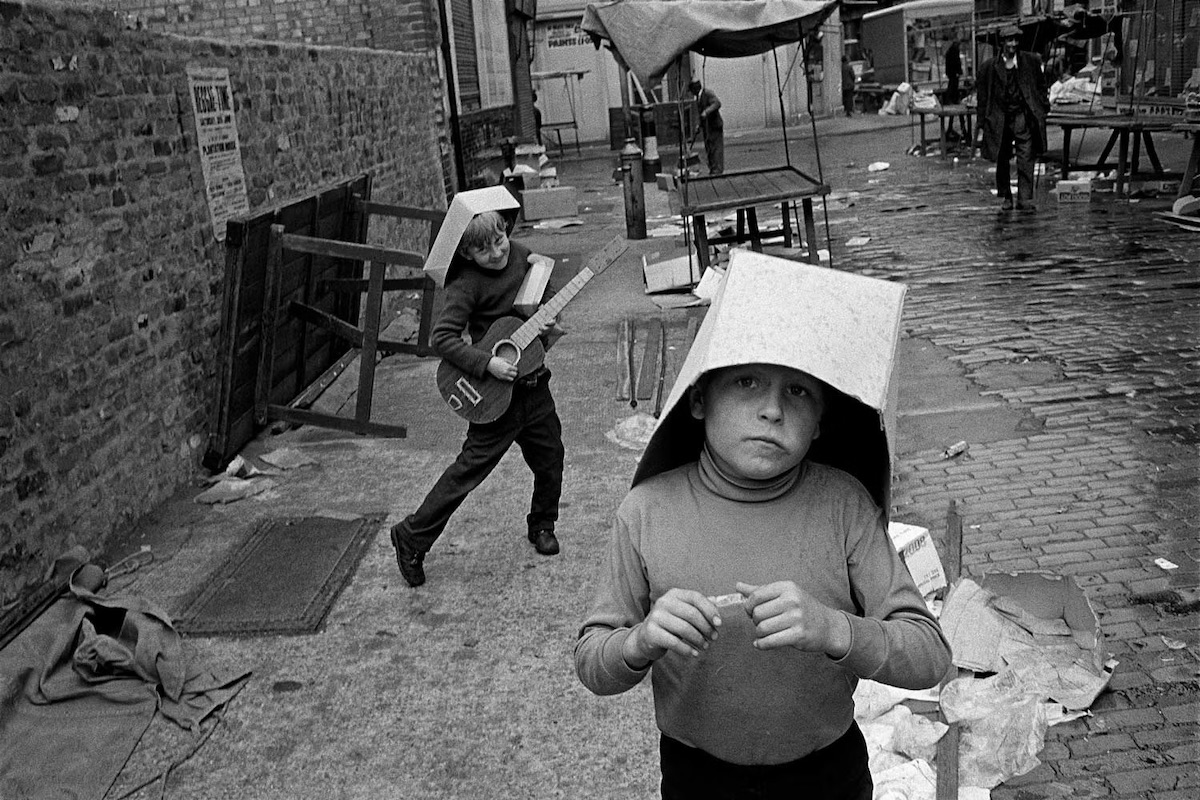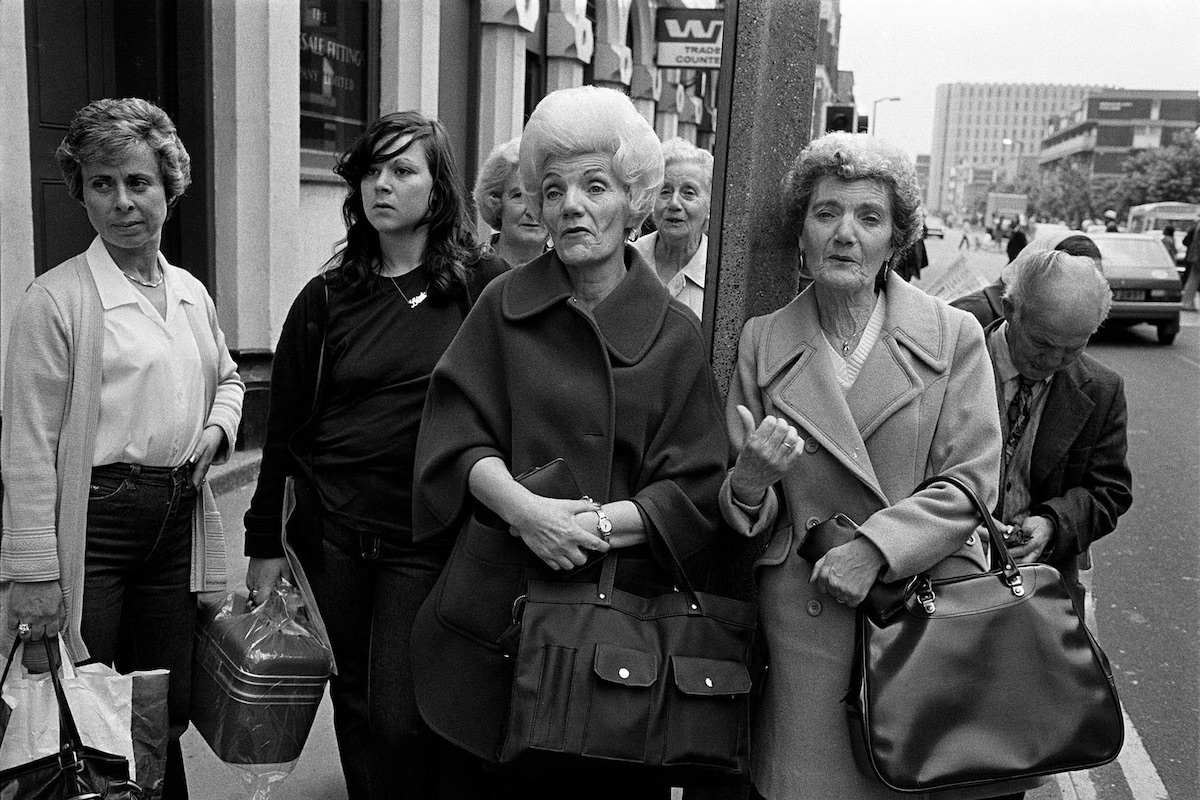Brick Lane in London’s East End is in area of flux. From the road where they used mark bricks and brew beer, the place has been sanctuary to immigrants for centuries and is now home to a large Bangladeshi community. In the 17th century, French Huguenots arrived and brought with them skills in weaving, tailoring and the developing clothing industry. Brick Lane is where Jews settled, fleeing persecution and extreme poverty. They worked in the textile and clothing industry. In 1889, there were 571 workshops making men’s coats in less than one square mile in and around Whitechapel. In 1901, there were 15 kosher butchers in Wentworth Street.
The Sunday market, like those on Petticoat Lane and nearby Columbia Road, dates from a dispensation given by the government to the Jewish community in the 19th century. At the time, owing to the Christian observance of Sunday rest, no Sunday markets were open. Located at the junction of Cheshire Street and Sclater Street, the market sells bric-a-brac as well as fruit, vegetables and many other items.
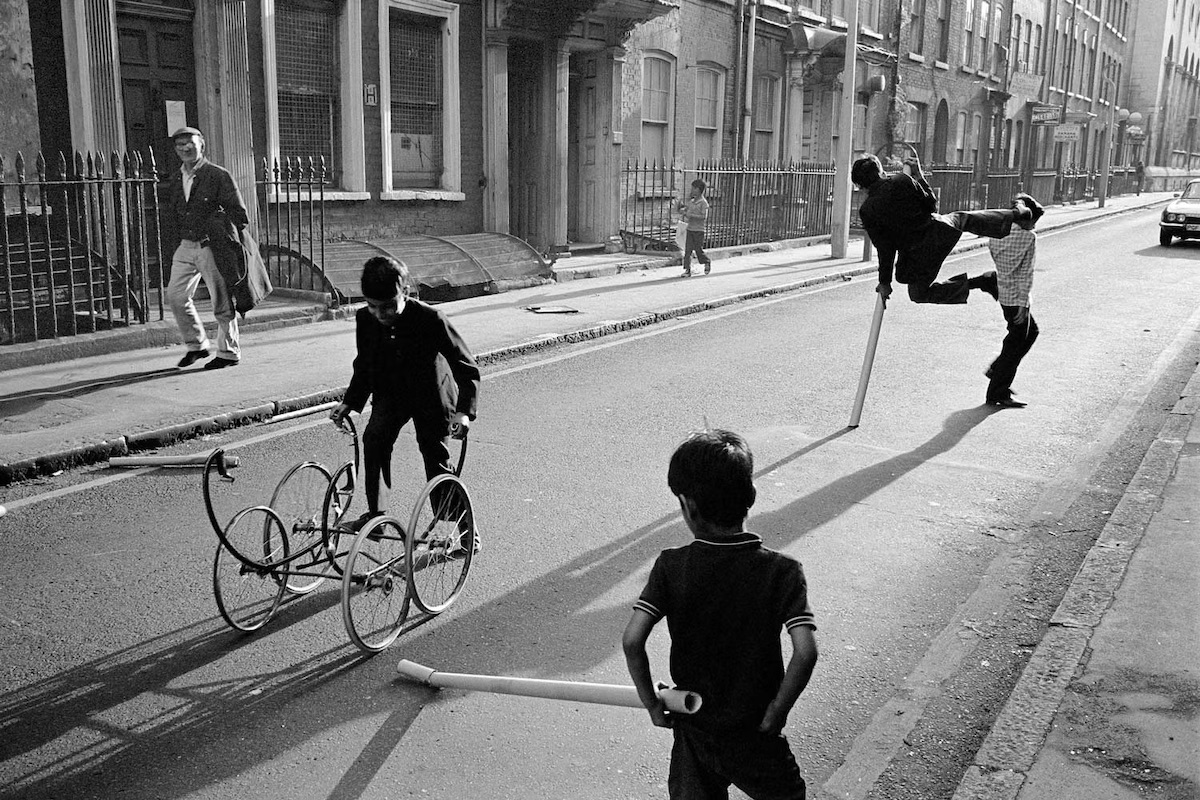
Fournier Street
One of the area’s own, Paul Trevor (previously) was born in London (1947) and grew up on a kibbutz in Israel. began to make pictures in his Brick Lane neighbourhood after abandoning his job as an accountant and deciding to become a photographer at the age of 25.
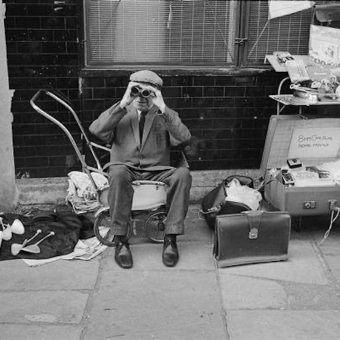
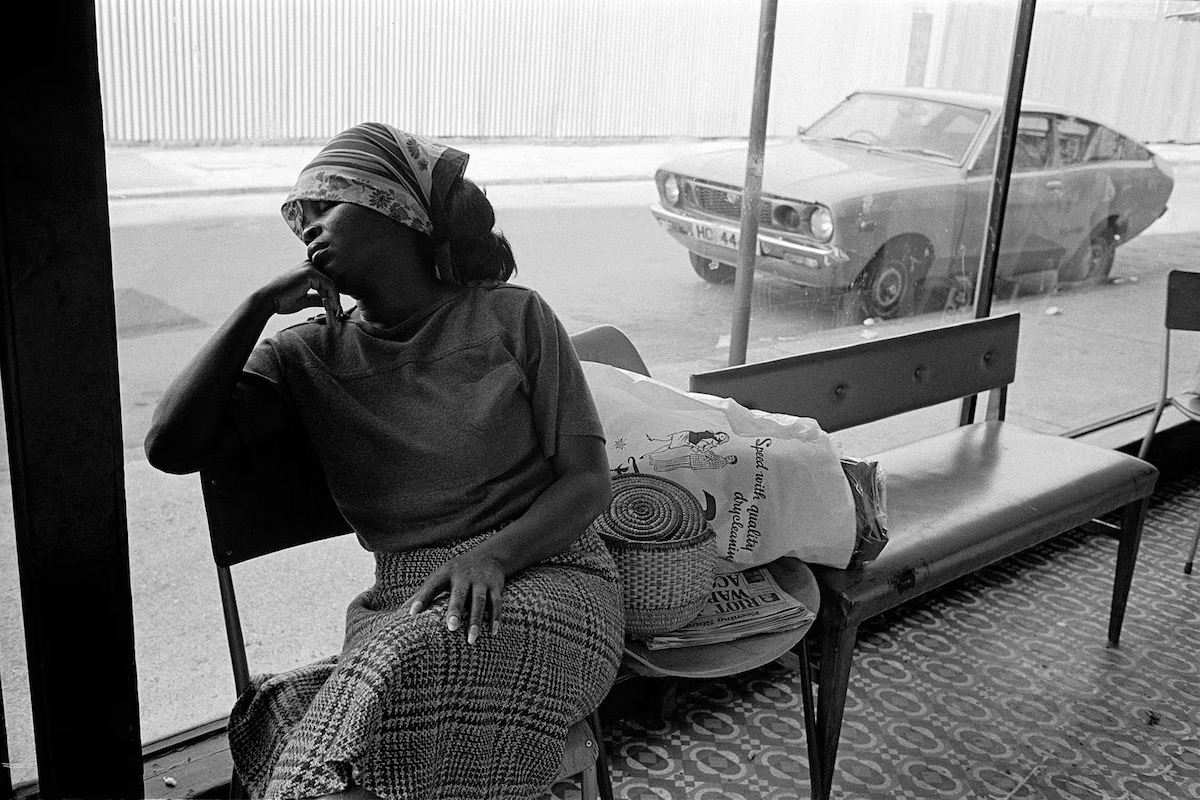
Brick Lane

On the Sunday in May when I took this photograph, I was coming back from the market. For a photographer, the material there is very rich, and I was a familiar character. People would always say to me, “Where’s your camera?” whenever I went out without it.
Suddenly I heard a cockney kid behind me saying in a very exaggerated, mocking tone: “I’ll fucking kill him!” I spun round and instantly photographed the scene: the boy’s bravado, the toy gun, the coppers looking on. I used a Leica M2, which was the only one I could afford, with a 35mm lens.
– Paul Trevor
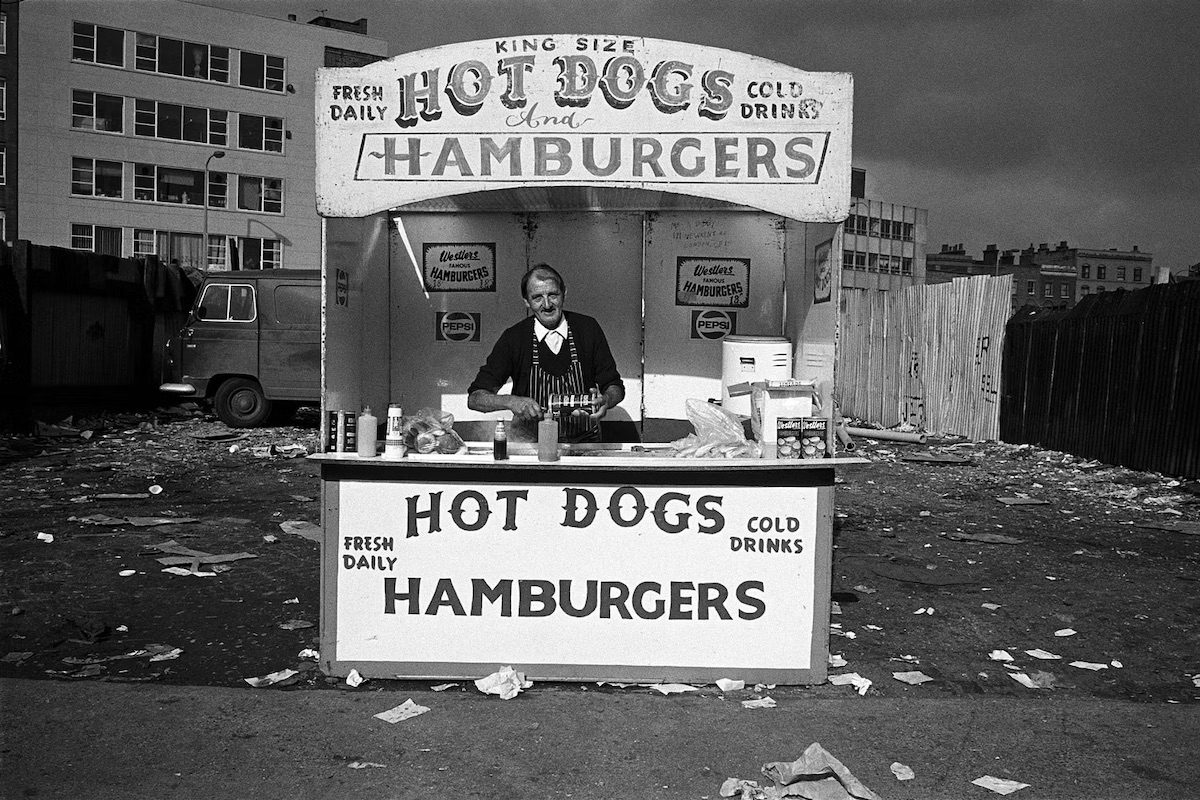
Sclater Street
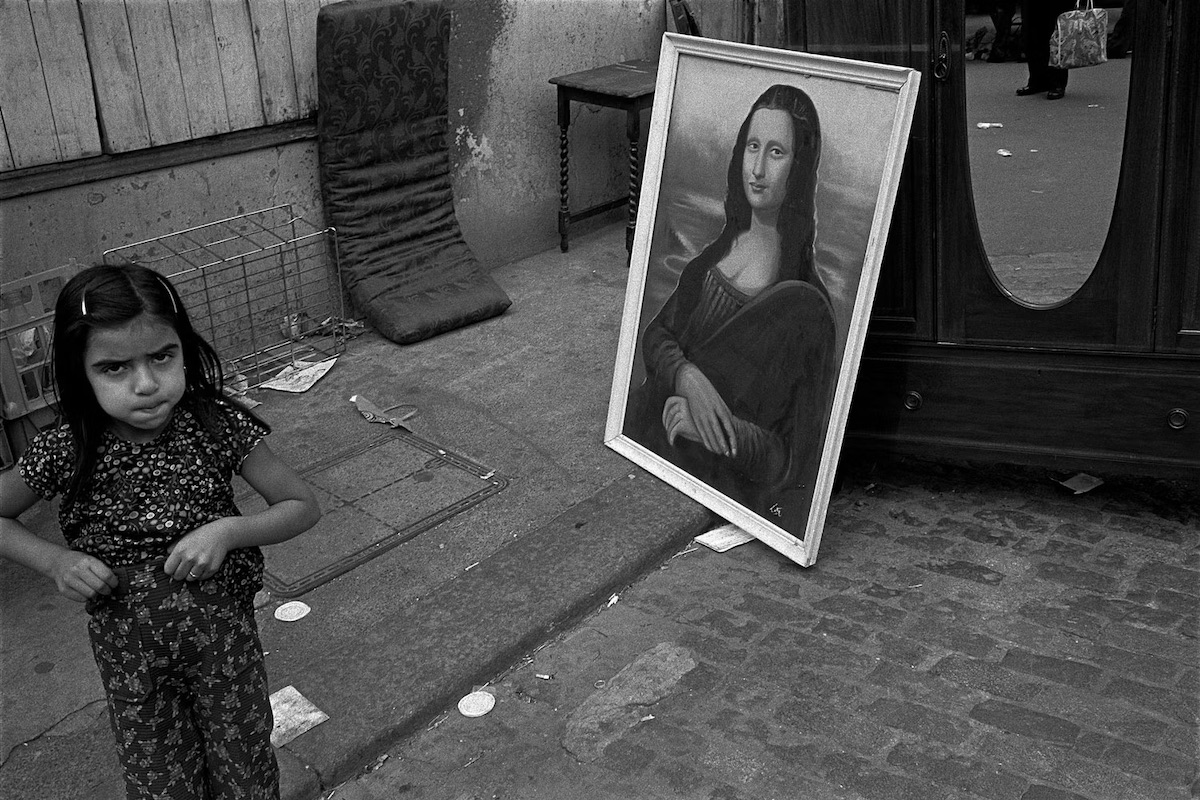
Cheshire Street
Some of Paul Trevor’s pictures are compiled in Once Upon a Time in Brick Lane.
The Paul Trevor Collection is part of a larger archive project at London Metropolitan University.
Would you like to support Flashbak?
Please consider making a donation to our site. We don't want to rely on ads to bring you the best of visual culture. You can also support us by signing up to our Mailing List. And you can also follow us on Facebook, Instagram and Twitter. For great art and culture delivered to your door, visit our shop.
